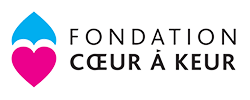- fondationcoeurakeur@gmail.com
- Cotonou, Camp Guezo, Rue 5100
Early learning for children : A CRUCIAL CHALLENGE FOR DEVELOPMENT
Early development is a key stage in a child’s development. It is during the first years of life that children acquire the fundamental skills that influence their education, socialization and future well-being. In Benin, although efforts are being made to promote adequate care for toddlers, many challenges remain, linked to awareness, access to infrastructures and training of professionals.
According to UNICEF, a child’s first 1,000 days, from conception to two years of age, are crucial to his or her physical, emotional and cognitive development. Florence AKOUTA, a health worker, points out that early-learning activities stimulate the child’s brain, promoting the acquisition of language, motor skills and social relationships.
Awakening the child involves activities such as educational games. These may involve manipulating objects, puzzles, sensory toys or reading. All these elements are essential for developing language skills, as well as social interaction to encourage contact with other children and adults.
However, in Benin, many children do not benefit from these stimuli due to the precariousness or lack of information of their parents. Jean-Baptiste, who teaches at a pre-school, tells us that in his area, “parents are often unaware of the importance of early learning. The first step is to raise awareness among families before we can work with children.The means are lacking, but the results are encouraging,” he said.
Statistics on the subject in Benin
Studies carried out in 2023 reveal that 60% of children under the age of 5 have no access to structured early-learning activities, particularly in rural areas. In addition, 45% of children aged 3 to 5 do not attend pre-school due to lack of infrastructure or financial resources.
Finally, 1 child in 3 suffers from developmental delays linked to a lack of early stimulation. Agnès, a mother of two in Abomey-Calavi, says she discovered the importance of educational games during a training course organized by an NGO. Since then, she says, she devotes time every day to playing and reading with her children. “I’ve seen a big change in their behavior and curiosity,” she says.
Existing legal tools…
In Benin, the legal framework for child protection and development is underpinned by the United Nations Convention on the Rights of the Child. Ratified by Benin in 1990, Law no. 2007-27 on child protection in Benin emphasizes the right to appropriate education from the earliest age, with the National Strategy for Integrated Early Childhood Development (SNDIPE), adopted in 2016, aiming to strengthen education, health and nutrition services for children aged 0 to 8.
Challenges remain numerous, particularly in the effective implementation of programs in rural areas. “The state needs to invest more in infrastructure and training for educators. An enlightened child is an accomplished future adult”, suggests a primary education inspector.
Obstacles to child development in Benin
These include the lack of suitable facilities. Benin has few crèches and pre-school centers, especially in rural areas. A lack of awareness among parents, particularly in disadvantaged areas, as they are unaware of the benefits of early learning.
The lack of trained professionals, the high cost of educational equipment such as educational toys and books, which are out of reach for many families.” It’s crucial that parents spend time interacting with their children. Simple gestures, such as singing or playing, can have a huge impact”, strongly recommends Faoziath BISSIROU, child psychologist.
Many children are victims of forced labor and human trafficking, making them vulnerable to various types of violence. Many children drop out of school to survive on the streets, perpetuating the cycle of poverty caused by lack of schooling.

